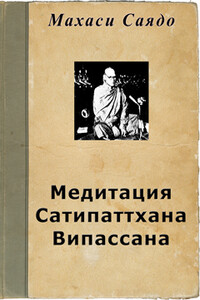Mastering the Core Teachings of Buddha. An Unusually Hardcore Dharma Book - [5]
Foreword and Warning
me saying it. I have also left in a lot of my neurotic stuff and made it as obvious as I can. I will assert that anyone who writes puts their stuff in there even if they try to hide it, so at least you should be able to see it clearly rather than it being hidden and covert. If you want a book that is just the straight dogma and theory without this sort of voice, there are lots to choose from and I will mention a number along the way.
I have also included a modicum of social commentary, some of which has a definite bite to it. Some of you may not find it helpful, or even find it quite distasteful and offensive. Some of you will quickly dismiss it as harsh or wrong speech. I am torn between the feeling that there really are some important points in those sections and the understanding that not everyone will be able to make good use of information and opinions presented in such strong terms. Thus, I ask you to please skip over those chapters and get to the friendlier or more technical sections beyond them if you don’t find them helpful. To facilitate doing so, I have included a star (asterisk) in the titles of those chapters that contain potentially inflammatory material so that they may be treated appropriately.
While I feel that the points made in those chapters are important and potentially quite valid and useful, they are not absolutely necessary for understanding the chapters that follow them. The world is brimming with very nice and friendly dharma books. There are hundreds available on the shelves of any mega-bookstore. However, I believe that there is room for a book that sometimes conveys its message in a very different voice, though I respectfully give you the option to choose how much of that voice you want to hear. It is the unrestrained voice of one from a generation whose radicals wore spikes and combat boots rather than beads and sandals, listened to the Sex Pistols rather than the Moody Blues, wouldn’t know a beat poet or early ‘60s dharma bum from a hole in the ground, and thought the hippies were pretty friggin’ naïve, not that we don't owe them a lot. It is also the unrestrained voice of one whose practice has been dedicated to complete and unexcelled mastery of the traditional and hardcore stages of the path rather than some sort of vapid New Age fluff or pop psychological head-trip. If that ain’t you, consider reading something else.
vii
Foreword and Warning
As a highly regarded senior meditation teacher and scholar (who will remain anonymous) said to me after skimming through an earlier draft of this book, “Most Buddhists are just aging Boomers who want to do something to feel better about themselves as they get older and are not really interested in this sort of thing.” I wish them great success in getting those valid needs met and so I must reluctantly advise such individuals to avoid reading this book or at least the chapters marked with a star.
This is simultaneously an admission of the limitations of this work, an invitation to adopt a more empowering view of what is possible on the spiritual path, and a warning.
I have had other motivations for writing this book. A number of people have attempted to have me be their meditation teacher. I have done what I can to encourage them to practice well, go on retreats and explore, but as soon as I get the sense that they are not into really doing the work or are trying to idolize me in even small ways, I go out of my way to alienate them completely. I greatly prefer the company of fellow adventurers who wish to explore the mysteries of this life together than any other sort of relationship. Dharma friends may be at different stages in the practice and one friend may teach another something useful, but this has a very different feel from people who are formally teacher and student. Thus, writing this book allows me to hand them the better part of what I know and say, “Here, if you are really into it, there is more than enough here to allow you to plunge as deep as you care to. If not, I have wasted little of my time and can avoid being put on some strange pedestal or pillory, at least to my face.”
That said, I do have the explicit goal of facilitating others to become living masters of this material that they may go forth and help to encourage more people to do so. The more people are able to teach from a place of deeply established personal experience, the more people will be able to learn the dharma well, and the saner and happier the world will be.
This brings me to the question of the issue of what some would call hierarchy. The simple fact is that there are those that have attained to what is called awakening, enlightenment, realization, etc. and those that haven't. There are those with strong concentration abilities and those those without. There are those who have their morality trip together and viii
Foreword and Warning
those that don't. There are those who are masters of some things and those that have more work to do. While there is a strangely pervasive movement in the West to try to imagine everyone is equal in the world of spirituality, it is obviously completely delusional and wrong-headed.
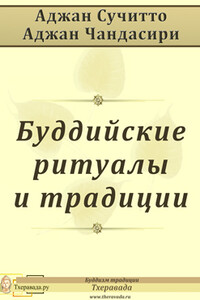
Буддийские ритуалы и традицииСоставлено авторами английского издания на основе лекций Аджана Сучитто и Аджана Чандасири в монастыре Читтавивека(Великобритания)Перевод с английского выполнил мирянин Кхантибалопо изданию «Buddhist rituals and observances» © Amaravati Publications 2001Сайт буддийской литературыwww.dhammabooks.ruТолько для бесплатного распространенияМосква, 2007 год.
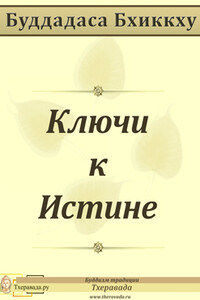
Буддадаса БхиккхуКлючи к ИстинеPедакция перевода: 15.07.2008Перевод с английского: SVисточник: Сборник лекций "Keys to Natural Truth"Второе издание: 1999 The Buddhadasa Foundation (Чайя)
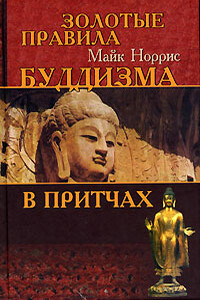
В предлагаемой читателю книге собраны классические притчи, приписываемые различным буддийским Учителям. Но эти притчи, отражающие золотые правила буддийского учения, уже давно преодолели границы Буддизма, в рамках которого были созданы, и являются сегодня достоянием мировой культуры, духовно обогащая любого человека, прикоснувшегося к их мудрости. Ведь прикосновение к мудрости через притчу, легенду, сказку – самый демократичный путь познания Истины.

Аджан СумедхоСборник бесед на ретрите.В книгу вошли беседы Аджано Сумедхо проходившие в: монастыре Читтавивека в феврале 1981 г., август 1982 г., апреле 1983 г., на летнем ретрите Буддийского Общества в Великобритании, 1979 г. и в 1982 г., на ритрите в буддийском центре в Оукен Холте, апрель 1979 г.,.
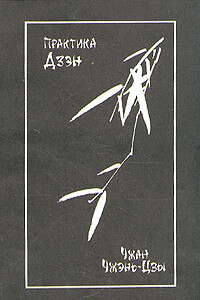
Книга Чжан Чжень-Цзы дает нам возможность ближе познакомиться с учением Дзэн-буддизма. В этой необъятной области автор выделяет и рассматривает первостепенный аспект — характеристику и закономерности работы сознания в ходе религиозной практики. Ясно, что здесь обозначен лишь общий подход, выделены главные принципы, на основании которых добросовестный, устремленный читатель способен сам проследить и понять, быть может самое главное, что не вошло в текстовое содержание книги. И это понимание, безусловно, может существенно помочь в его собственном духовном продвижении, особенно при отсутствии учителя.Характерно, что в заголовок вынесено японское слово «Дзэн», а книга целиком написана на китайском материале.
